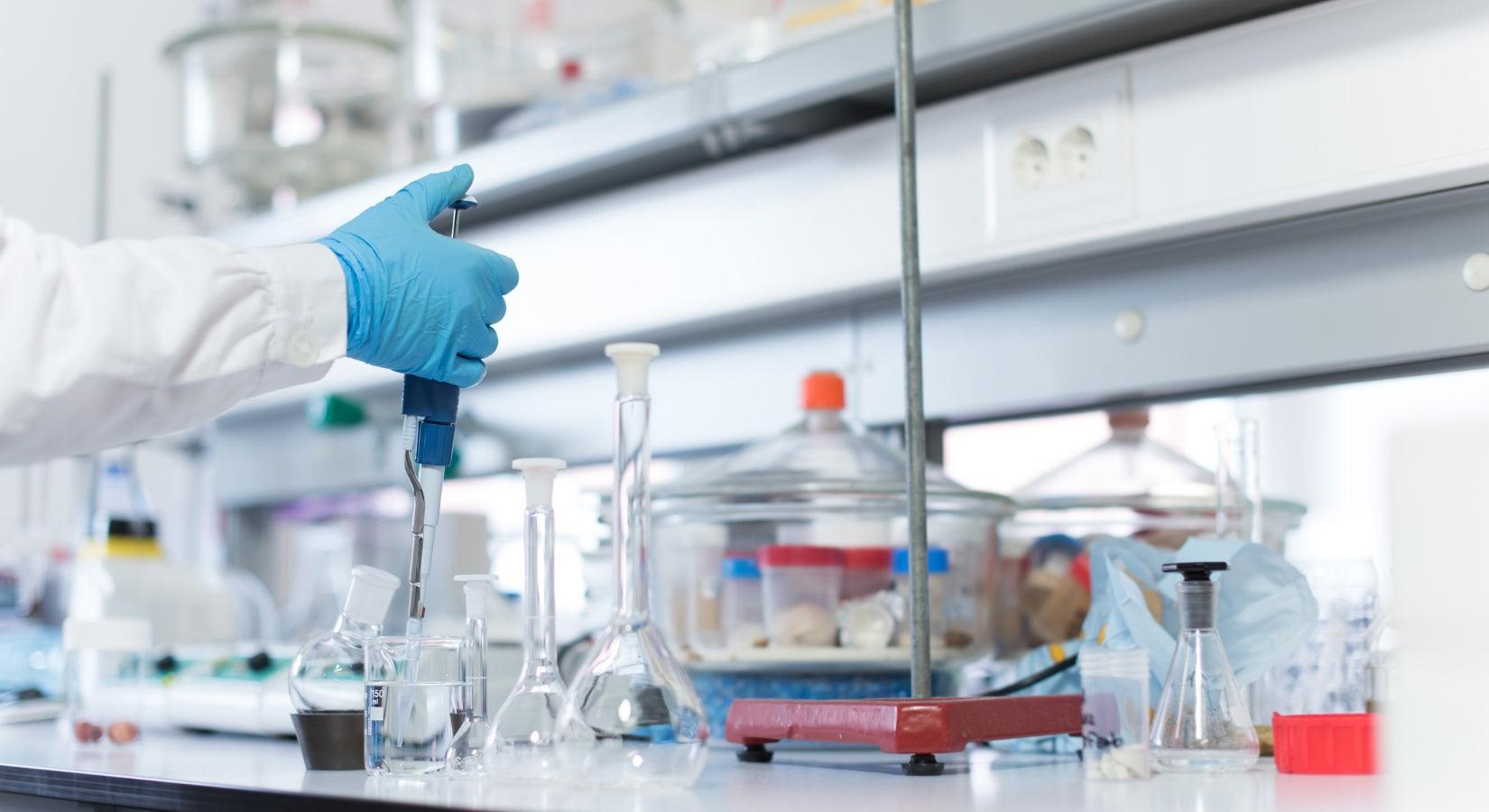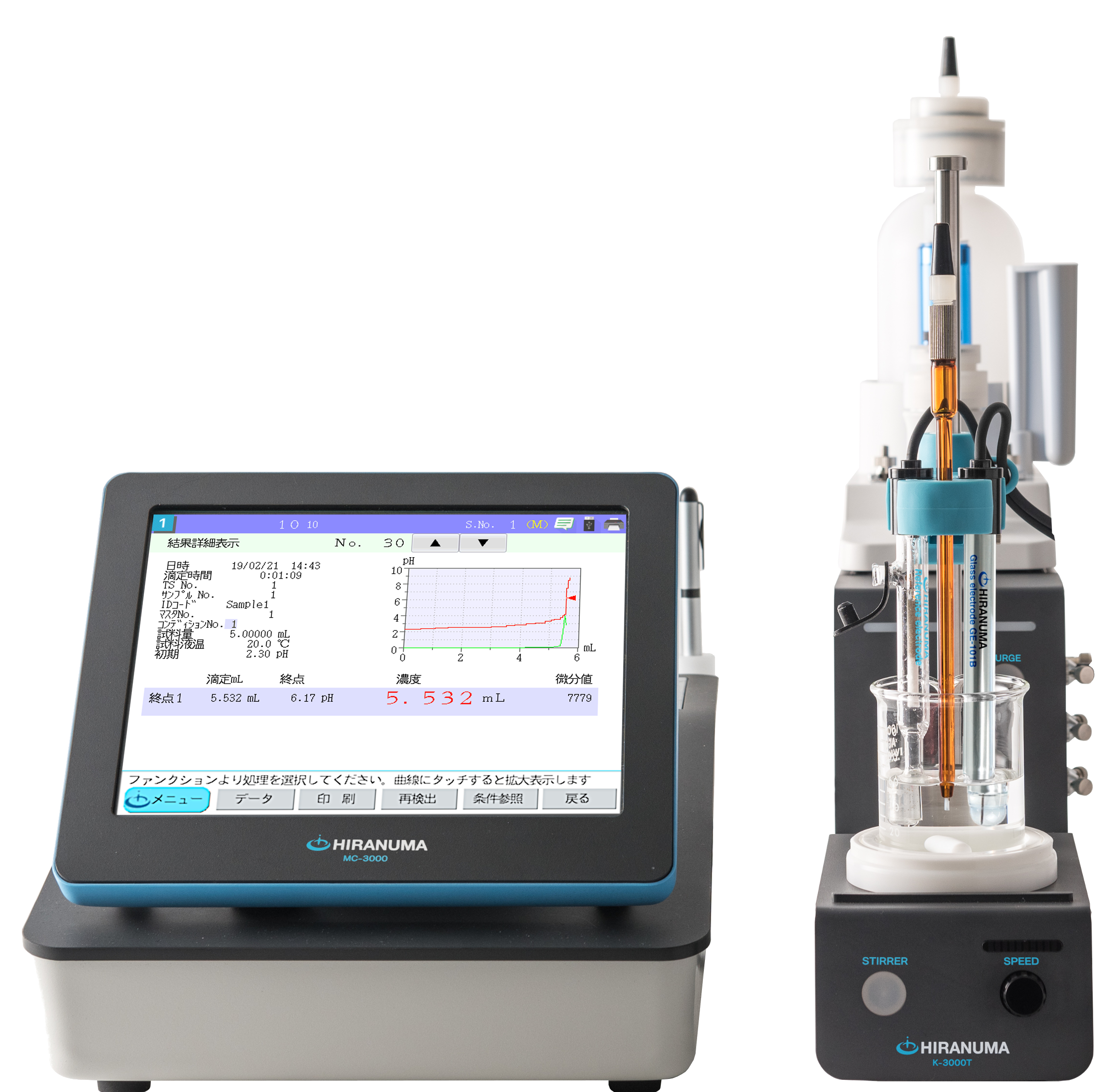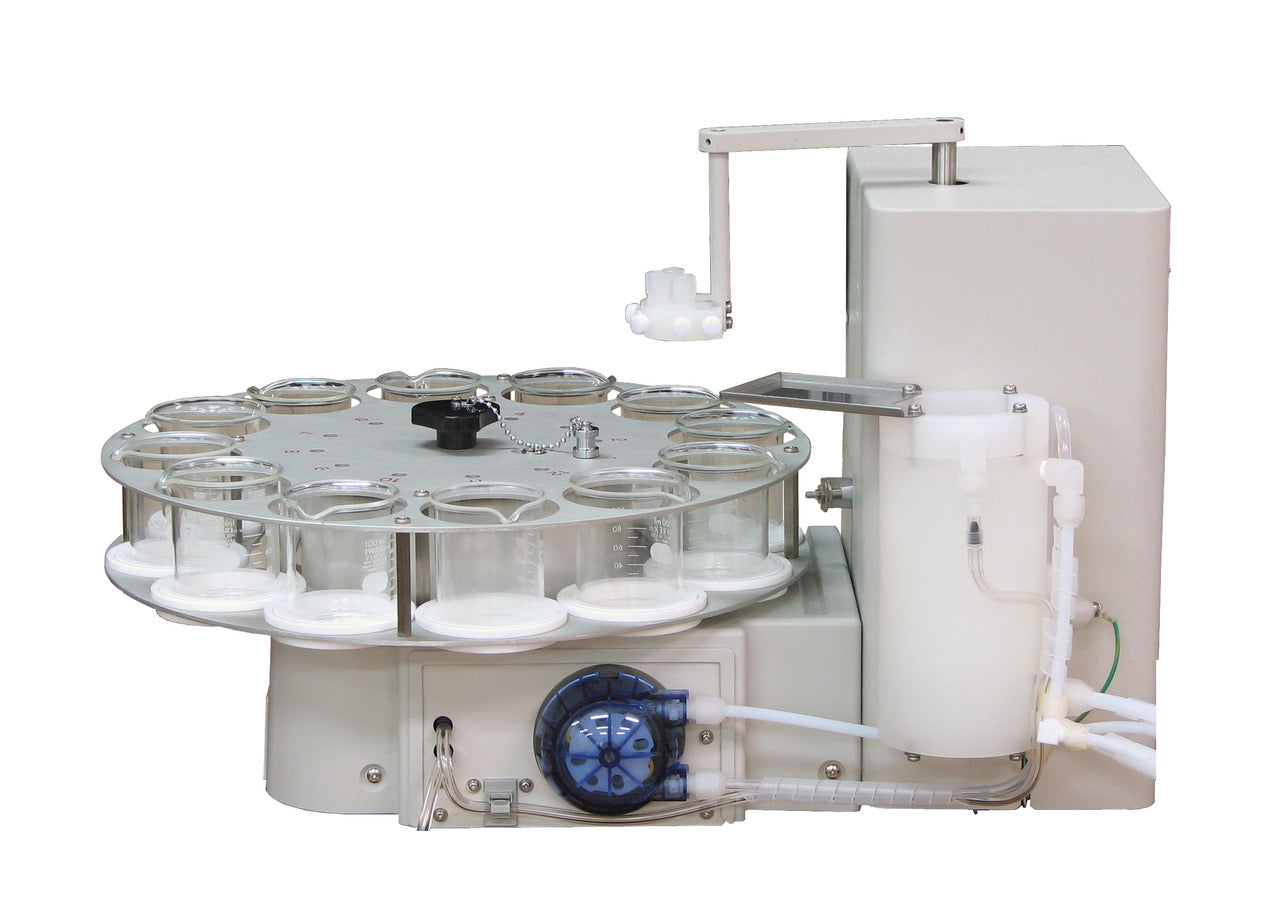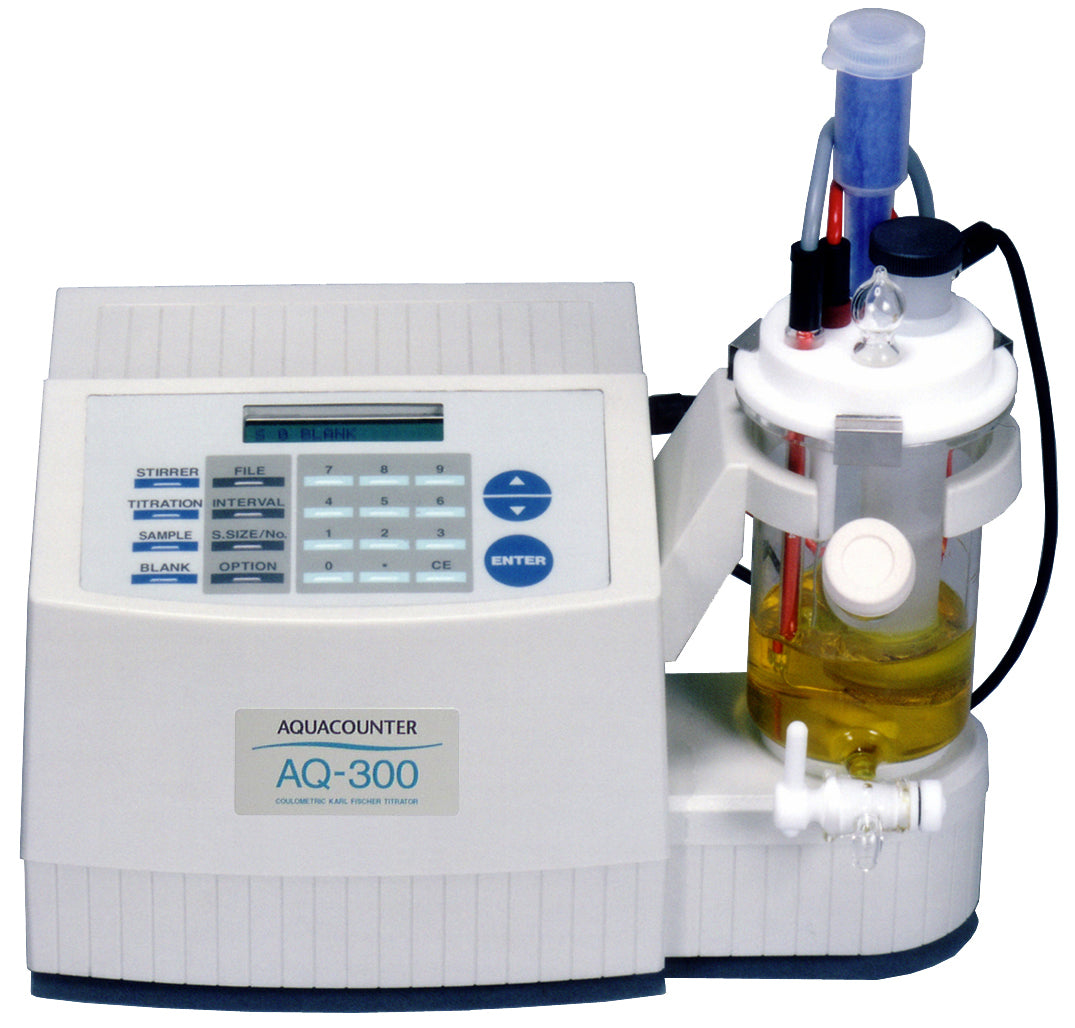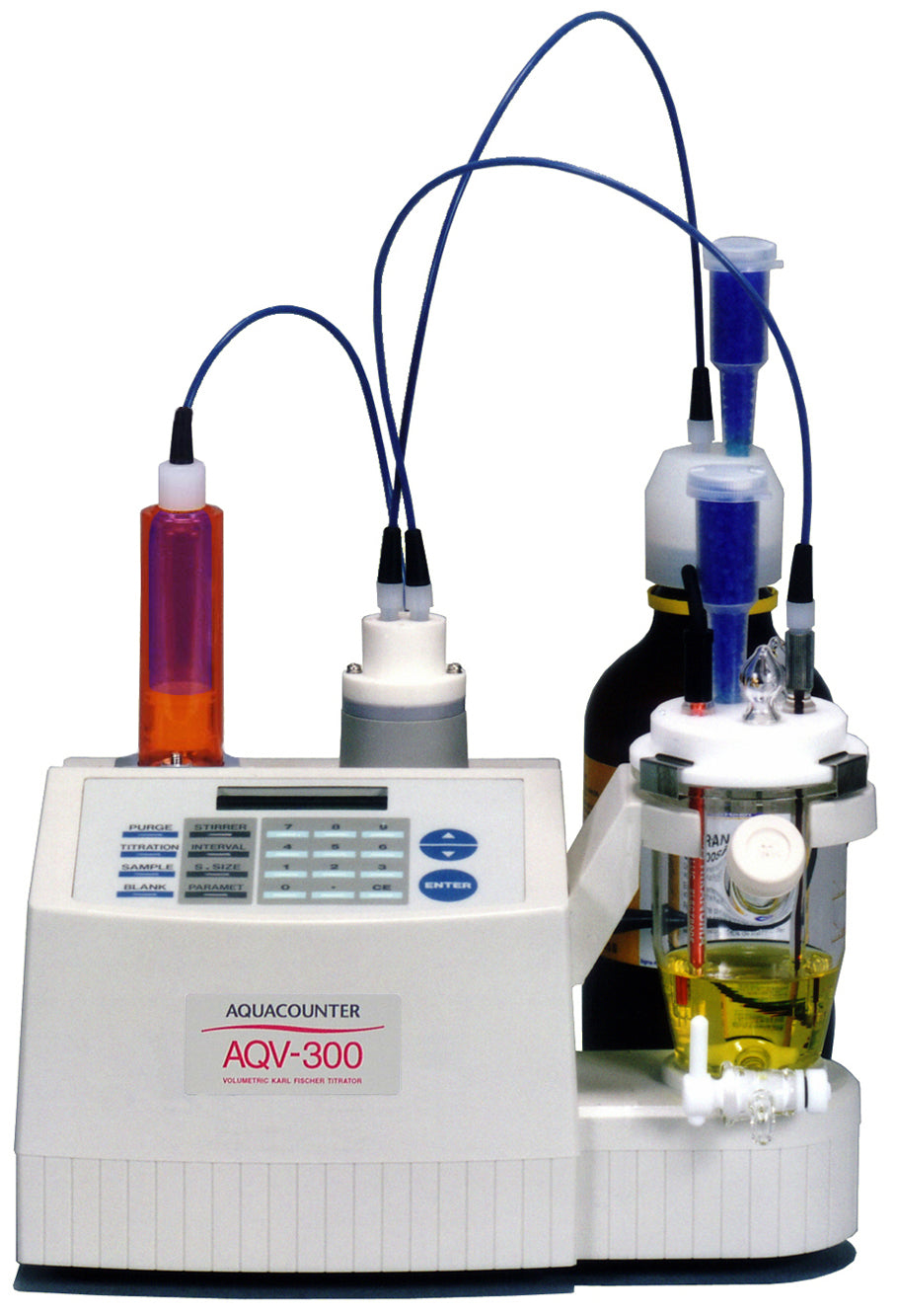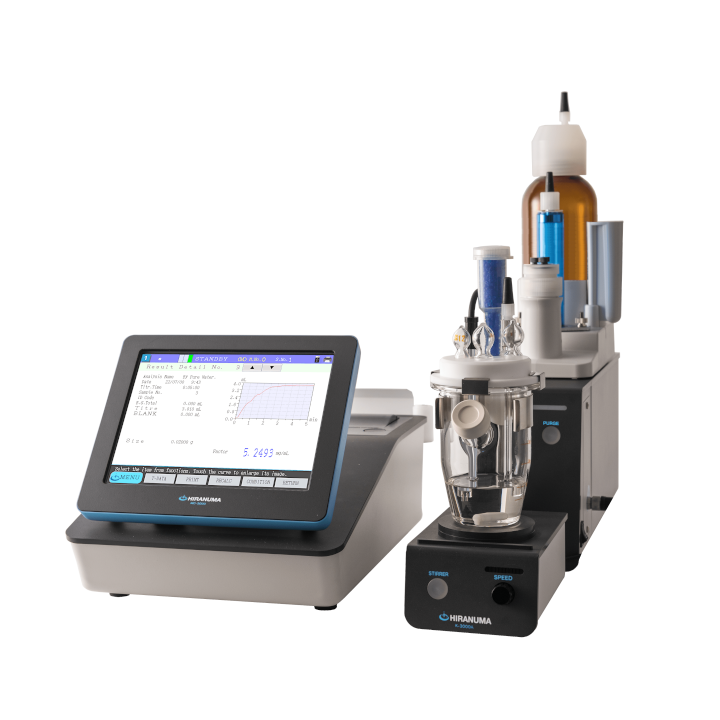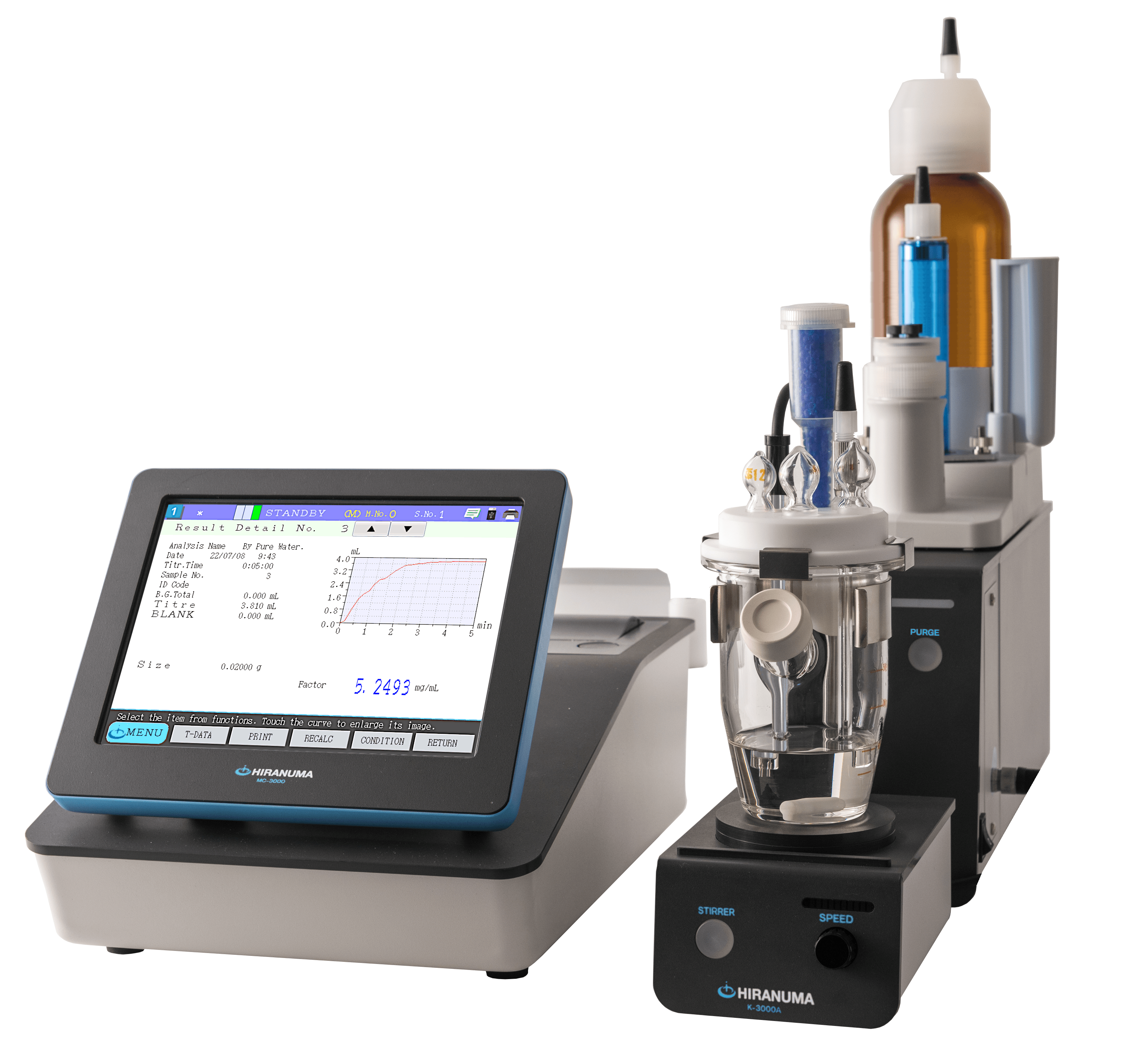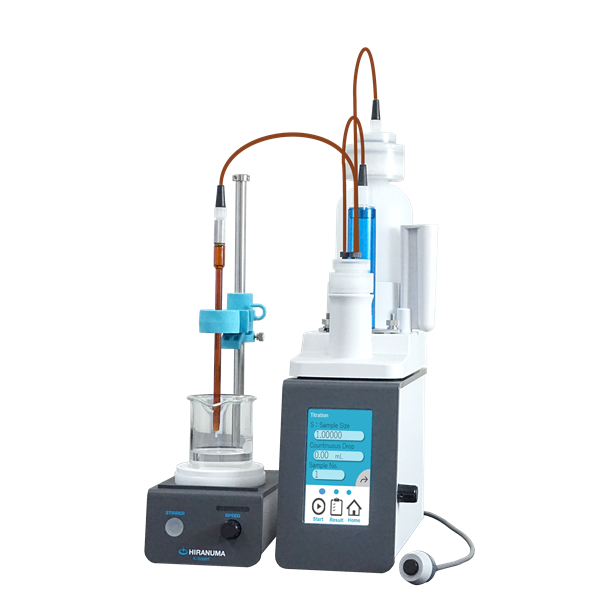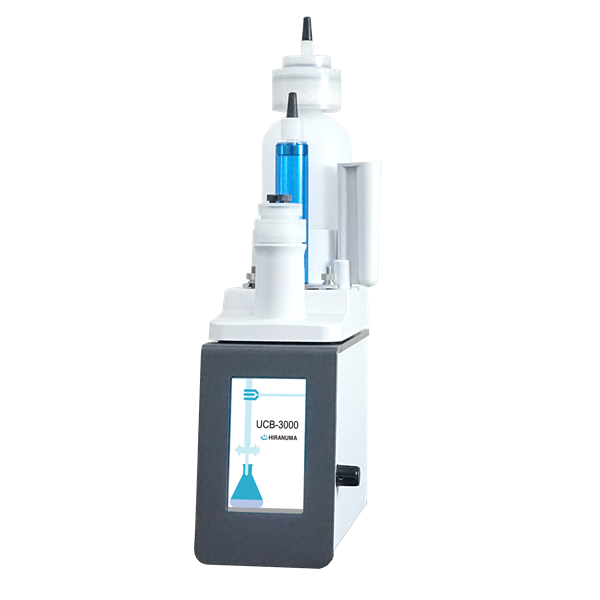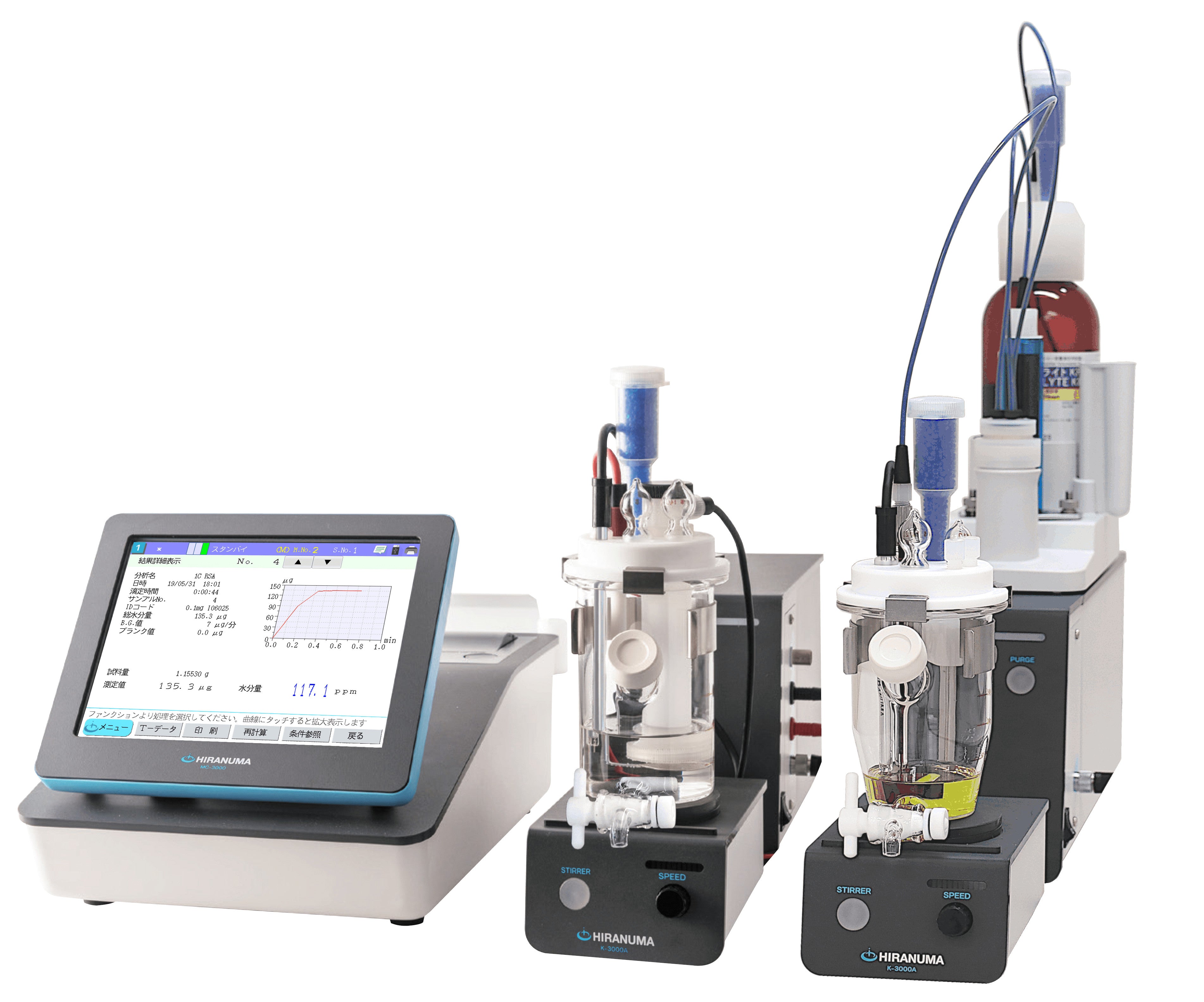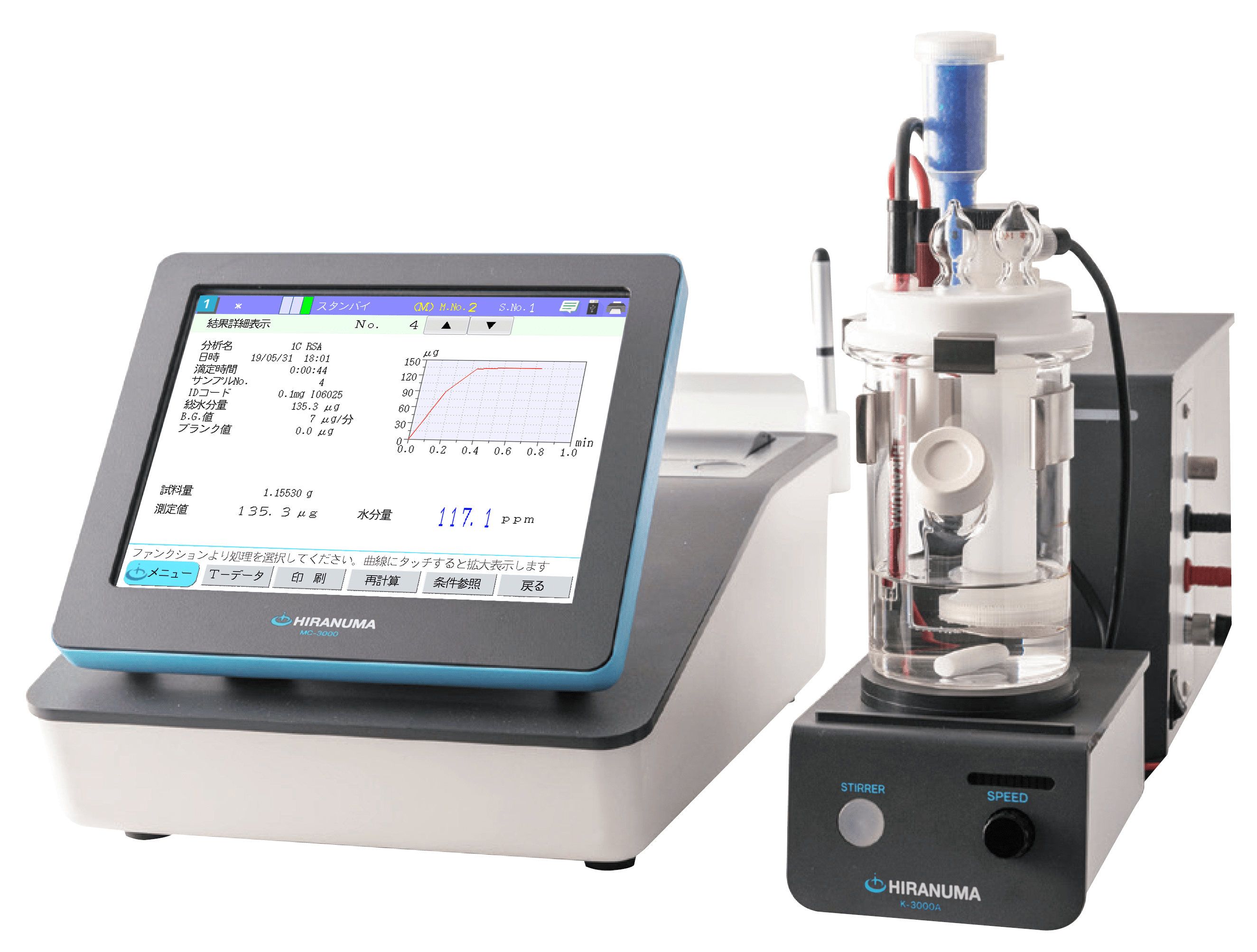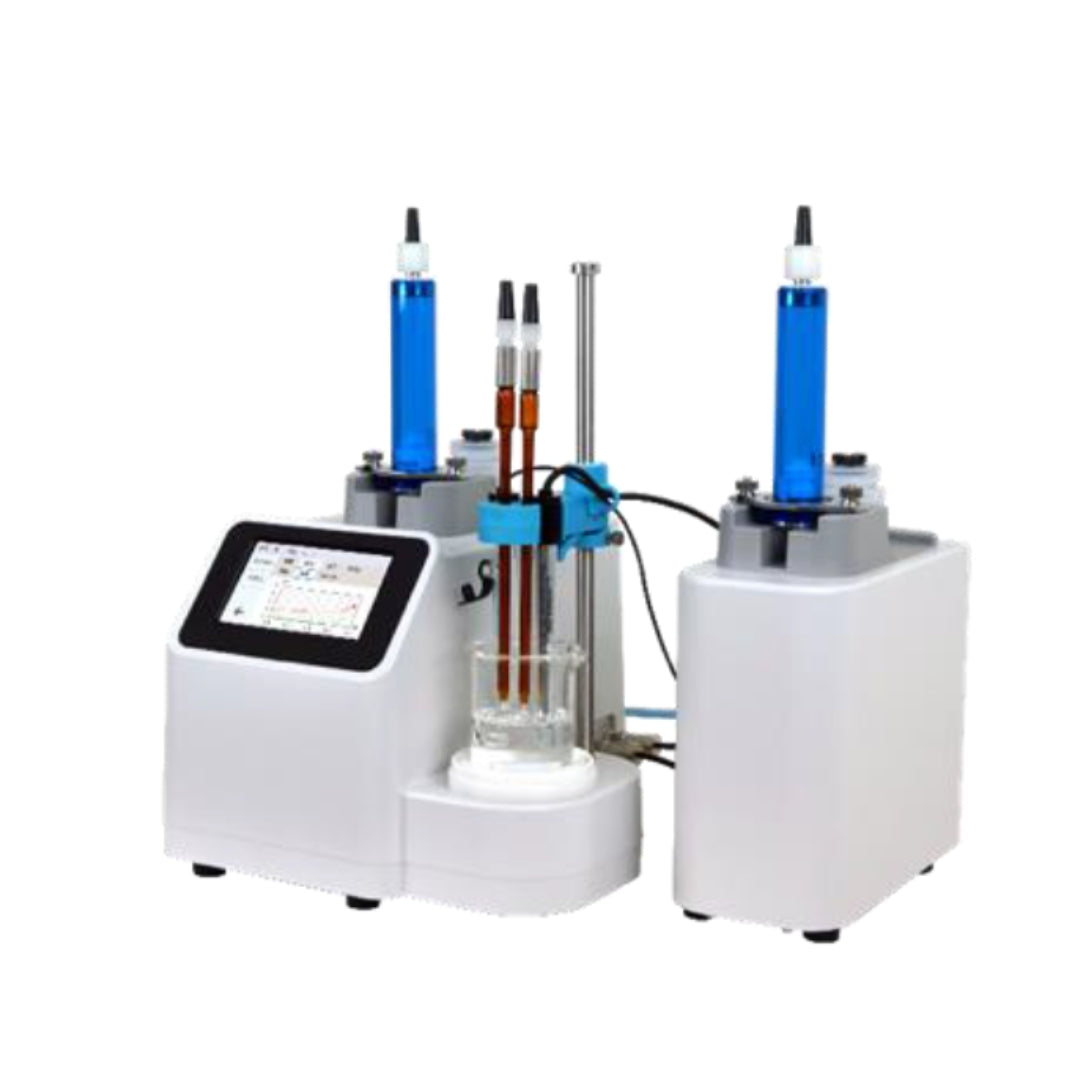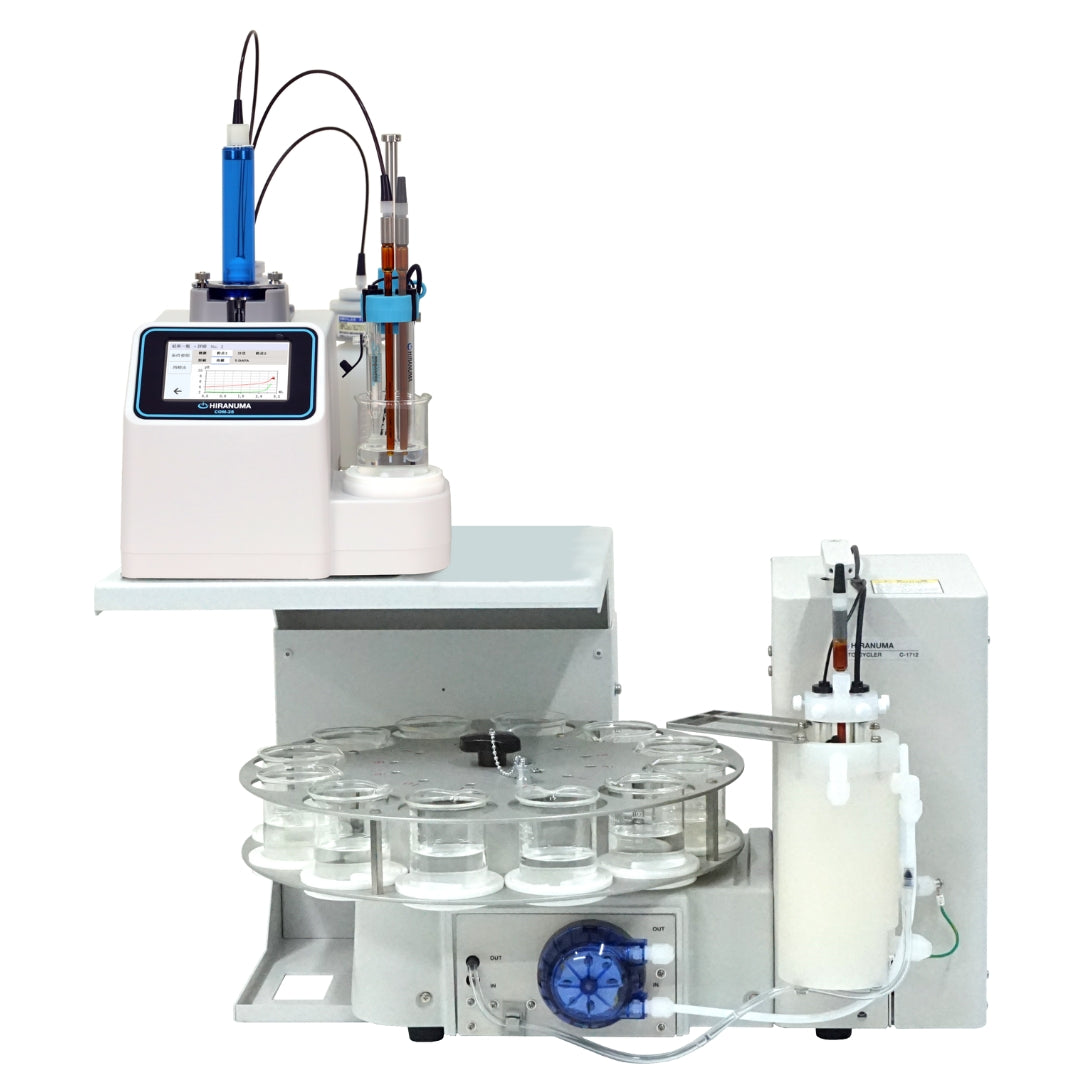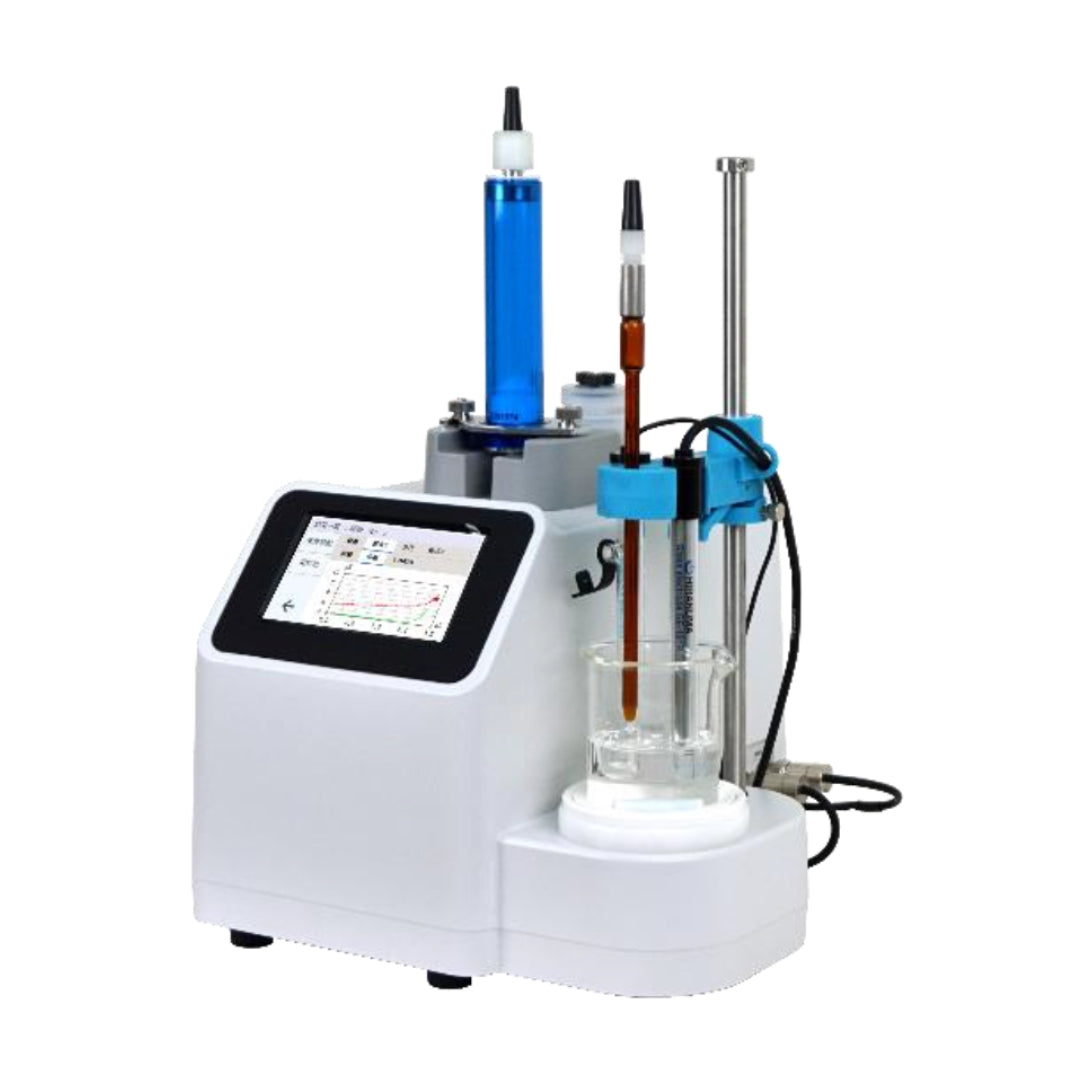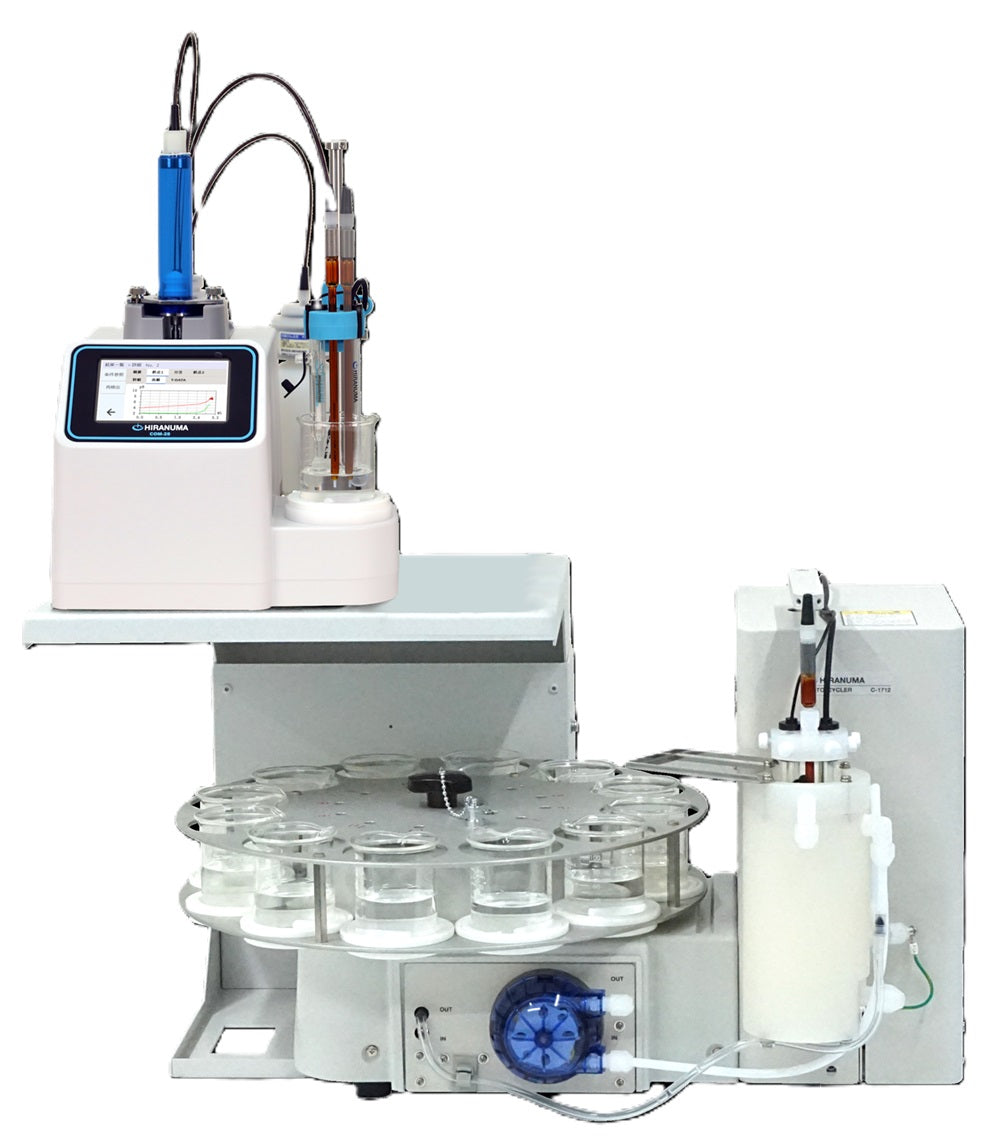| HIRANUMA APPLICATION DATA | Automatic Titrator | Data No. | J5 | Apr. 5,2019 |
| Inorganic acids & Mixed acids | Fractional determination of hydrochloric acid and sulfuric acid |
1. Abstract
The mixed solution of hydrochloric acid and sulfuric acid works as strong acid, and also has the strong oxidizability and solvency. It is used as the surface treatment solution for metals, glass products, and semiconductors. Hydrochloric acid and sulfuric acid are strong acids, therefore the fractional determination by neutralization titration is difficult.
The total acids of hydrochloric acid and sulfuric acid in the mixed solution are determined first by neutralization titration in this report. Nitric acid is added to the sample solution continuously to adjust the pH. Finally, the concentration of hydrochloric acid is determined by precipitation titration, the concentration of sulfuric acid is calculated by subtracting the concentration of hydrochloric from the total acids concentration.
The example of fractional determination for hydrochloric acid and sulfuric acid with additional burets are introduced in this report.

| H₂SO₄ + 2NaOH → Na₂SO₄ + H₂O | ・・・(1) |
| HCl + NaOH → NaCl + H₂O | ・・・(2) |
| HCl + AgNO₃ → AgCl + HNO₃ | ・・・(3) |
2. Configuration of instruments and Reagents
| (1) | Configuration of instruments | ||
| Main unit | : | Hiranuma Automatic Titrator COM series | |
| Option | : | One buret, Peristaltic pump type dispenser | |
| Electrodes | : | Glass electrode GE-101B for total acids measurement Connect to IE-1. Silver-reference electrode AGR-811Z for hydrochloric acid measurement (Double junction type) Connect to IE-2 and RE-2. |
|
| (2) | Reagents | ||
| Titrant | : | 0.1 mol/L Sodium hydroxide standard solution for total acids measurement 0.1 mol/L Silver nitrate for hydrochloric acid measurement |
|
| Additive solution | : | 2 mL of 1 mol/L Nitric acid solution for pH adjustment | |
3. Measurement procedure
| (1) | Dispense 1 mL of sample into 30 mL DI water in a volumetric flask with volumetric pipette. Cool it to room temperature and dilute to 100 mL with DI water. |
| (2) | Dispense 10 mL of diluted sample solution into a 100 mL beaker with volumetric pipette. |
| (3) | Add 40 mL of DI water. |
| (4) | Immerse electrodes and start titration with 0.1 mol/L sodium hydroxide standard solution. |
| (5) | After the procedure (4), 2 mL of 1 mol/L nitric acid is automatically dispensed by optional dispenser. |
| (6) | Titrate with 0.1 mol/L silver nitrate standard solution with optional buret. |
4. Measurement conditions and results
Examples of titration conditions
(1) Titration for total acids with sodium hydroxide standard solution (converted into hydrochloric acid)
| Cndt No | 1 | |
| Method | Auto | |
| Buret No. | 1 | |
| Amp No. | 1 | |
| D. Unit | pH | |
| S-Timer | 5 | sec |
| C.P. mL | 0 | mL |
| T Timer | 0 | sec |
| D.P. mL | 0 | mL |
| End Sens | 1000 | |
| Over mL | 0 | mL |
| Max Vol. | 20 | mL |
| Max Vol. | ||
| Constant No. | 1 | |
| Size | 10 | mL |
| Blank | 0 | mL |
| Molarity | 0.1 | mol/L |
| Factor | 1.004 | |
| K | 1 | |
| L | 0.01 | |
| Unit | mol/L | |
| Formula | ||
| (D-B)*K*F*M/(S*L) | ||
| Decimal Places | 3 | |
|
Auto In Pram.
|
None | |
| Mode No. | 20 | |
| Pre Int | 0 | sec |
| Del K | 9 | |
| Del Sens | 0 | mV |
| Int Time | 2 | sec |
| Int Sens | 3 | mV |
| Brt Speed | 2 | |
| Pulse | 40 | |
K: Equivalent of NaOH to HCl
L: Dilution ratio
(2) Dispense 1 mol/L nitric acid
| Cndt No | 2 | |
| Method | Disp | |
| Buret No. | 3 | |
| S-Timer | 0 | sec |
| Disp Vol. | 2 | mL |
(3) Titration for hydrochloric acid with silver nitrate standard solution
| Cndt No. | 3 | |
| Method | Auto | |
| Buret No. | 2 | |
| Amp No. | 2 | |
| D. Unit | mV | |
| S-Timer | 5 | sec |
| C.P. pH | 0 | mL |
| T Timer | 0 | sec |
| D.P. mL | 0 | mL |
| End Sens | 300 | |
| Over mL | 0.2 | mL |
| Max Vol. | 20 | mL |
| ConstantNo. | 3 | |
| Size | 10 | mL |
| Blank | 0 | mL |
| Molarity | 0.1 | mol/L |
| Factor | 1.005 | |
| K | 1 | |
| L | 0.01 | |
| Unit | mol/L | |
| Formula | ||
| (D-B)*K*F*M/(S*L) | ||
| Decimal Places | 4 | |
|
Auto In Pram.
|
None | |
| Mode No. | 6 | |
| Pre Int | 0 | sec |
| Del K | 2 | |
| Del Sens | 0 | mV |
| Int time | 3 | sec |
| Int Sens | 3 | mV |
| Brt Speed | 2 | |
| Pulse | 40 | |
(4) Calculation for sulfuric acid concentration
| Cndt No. | 4 | |
| Method | Calc | |
| ConstantNo. | 4 | |
| Size | 10 | mL |
| Blank | 0 | mL |
| Molarity | 0.1 | mol/L |
| Factor | 1 | |
| K | 1 | |
| L | 0.01 | |
| Unit | mol/L | |
| Formula | ||
| (CA-CB)/2 | ||
| Decimal Places | 4 | |
|
Auto In Pram.
|
None | |
Measurement results
(1) Results of Total acids
| Number of measurement |
Size (mL) |
Dilution ratio |
NaOH Titrant Volume(mL) |
Total acids (mol/L) |
|---|---|---|---|---|
| 1 | 10 | 1/100 | 6.777 | 6.8041 |
| 2 | 10 | 1/100 | 6.776 | 6.8031 |
| 3 | 10 | 1/100 | 6.779 | 6.8061 |
| Statistic calculation |
Avg. | 6.804 mol/L | ||
| SD | 0.002 mol/L | |||
| RSD | 0.022 % | |||
(2) Results of Hydrochloric acid and Sulfuric acid
| Number of measurement |
Size (mL) |
Dilution ratio |
AgNO3 Titrant volume (mL) |
Hydrochloric acid Conc. (mol/L) |
Sulfuric acid Conc. (mol/L) |
|---|---|---|---|---|---|
| 1 | 10 | 1/100 | 0.683 | 0.6864 | 3.0589 |
| 2 | 10 | 1/100 | 0.680 | 0.6834 | 3.0599 |
| 3 | 10 | 1/100 | 0.682 | 0.6854 | 3.0603 |
| Statistic calculation |
Avg. | 0.685 mol/L | 3.060 mol/L | ||
| SD | 0.002 mol/L | 0.001 mol/L | |||
| RSD | 0.223 % | 0.02 % | |||
Examples of titration curves
 |
 |
| Measurement of total acids | Measurement of hydrochloric acid |
5. Note
(1) Fractional determination of hydrochloric acid and sulfuric acid
The concentration of hydrochloric acid is measured by the determination of chloride ion in this method.
This method cannot be applied to the sample containing chloride ion from other than hydrochloric acid.
(2) Control of titrant
The carbon dioxide gas absorber (soda lime) on reagent bottle has to be regularly exchanged because sodium hydroxide used for total acids determination readily absorbs carbon dioxide gas in the air.
Keywords: Fractional determination of hydrochloric acid and sulfuric acid, Neutralization titration,Precipitation titration
*Some measurement would not be possible depending on optional configuration of system.

